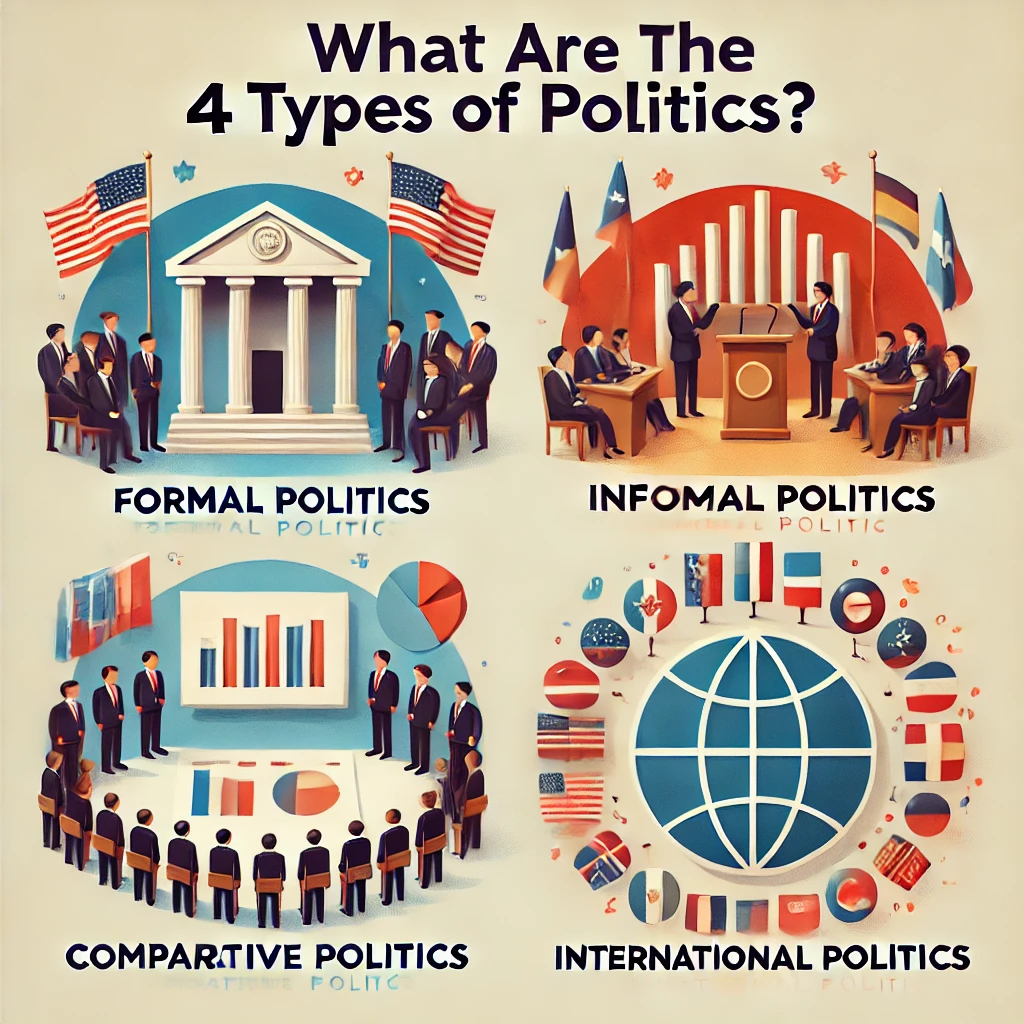A Detailed Guide to A-Level Politics
Energetic, significant, and provocative—these are just a few ways to describe A-Level Politics. Moreover, there’s no denying that it’s one of the most captivating and compelling qualifications you can choose. A-Level Politics is an engaging and essential subject that equips students with a deep understanding of political systems, theories, and practices. In addition, this course encourages critical thinking, analytical skills, and an awareness of contemporary issues in politics, both nationally and globally.
Studying politics at an A-level is vital not only for those wishing to pursue a career in political science, law, or international relations but also for cultivating informed and active citizens who understand their roles in society. As a result, as students engage with various political ideologies, government structures, and policy debates, they are empowered to make informed decisions about their communities and the world.
Furthermore, by exploring the significance of political structures and dynamics, A-Level Politics prepares students for higher education and equips them with transferable skills that are applicable in various career paths, including law, journalism, public policy, and diplomacy. If, therefore, you are interested in this qualification, explore our blog. In conclusion, we created this comprehensive guide to include everything you want to know about A-Level Politics.
Importance of Studying A-Level Politics
Studying Politics at A-Level is crucial for students seeking to understand the complex dynamics that shape our world. Inaddition, this subject equips learners with essential skills, including critical thinking, analytical reasoning, and effective communication. Furthermore, A-Level Politics fosters awareness of contemporary issues and encourages students to engage with political ideologies, institutions, and decision-making processes. As a result, it cultivates informed citizens capable of participating actively in democratic societies. Moreover, as students analyse both national and global political landscapes, they develop a foundation for advanced studies in fields such as law, international relations, and public policy, ultimately preparing them for diverse and impactful career paths.

A-Level Politics Curriculum Overview
The A-Level Politics curriculum provides students with a comprehensive understanding of political systems, focusing specifically on the UK Government’s structure and functioning. This core component explores the institutions and processes that define British democracy, examining how power is distributed, the role of government, and the interaction between various political entities.
Key Topics About The UK Government
By studying the UK Government, students gain insights into the mechanics of governance, as well as the significance of political participation and the impact of policies on society. Moreover, this understanding allows them to critically assess the effectiveness of various governmental processes and recognise their own roles as active citizens. In addition, exploring these topics fosters a deeper appreciation for the complexities of democracy and the importance of informed engagement in political affairs.
- The UK constitution – Students explore the principles and frameworks that define the UK’s constitutional arrangements.
- The roles of Parliament and the Prime Minister – This section focuses on the structure and role of Parliament in the UK political system.
- Political parties and electoral systems – This component examines the political parties in the UK and the electoral processes through which leaders are chosen.
- The judiciary and devolution – Students learn about the role of the judiciary in upholding the rule of law and protecting citizens’ rights.
Exam Board Highlights:
- AQA: Emphasises political participation and the effectiveness of democratic processes.
- OCR: Focuses on the relationship between the executive and legislature, as well as the role of the judiciary.
Key Topics About The Us Government
The study of the US Government within the A-Level Politics curriculum provides students with a comprehensive understanding of the political system, constitutional principles, and key governmental institutions that shape American democracy. Additionally, this component enables students to analyse the fundamental values and ideologies that underpin the operations of government, ultimately preparing them for informed engagement with both domestic and international political issues.
- The Constitution and the Bill of Rights
- The separation of powers
- Federalism and state governance
- The political party system and election processes
Exam Board Highlights:
- Pearson Edexcel: Covers extensive comparisons between the US and UK political systems, highlighting key differences in governance and political culture.
By studying these core components, A-Level Politics students gain a thorough understanding of the structure and functions of the US Government, equipping them with the knowledge necessary for analysing and evaluating the policies and practices that influence both the United States and the global stage.
Key Topics about Political Theories
The study of political theories in the A-Level Politics curriculum provides students with a foundation for understanding diverse ideologies and their impact on political systems and governance. Furthermore, this component encourages students to critically engage with the ideas of key political thinkers and to explore the development and application of various ideologies. In addition, it allows learners to analyse the relevance of these theories in contemporary political contexts.
- Liberalism, conservatism, socialism, and anarchism
- Key political thinkers and their contributions
- Contemporary political ideologies
Exam Board Highlights for A-level Politics:
- AQA: Offers a diverse range of political ideologies with an emphasis on their application in modern politics.
- OCR: Deep dives into key theorists and their influence on contemporary political thought.
By studying these core components of political theories, A-Level Politics students develop a nuanced understanding of how ideologies shape political discourse and influence behavior.

What Are the 4 Types of Politics?
While the categorisation can vary, four common types of politics are:
- Formal Politics: This involves the established institutions of government, political parties, and legal systems. It focuses on the formal processes of decision-making in political bodies.
- Informal Politics: This encompasses the influence of social movements, interest groups, and public opinion outside formal political institutions. It highlights how informal networks impact governance and policy.
- Comparative Politics: This field studies and compares various political systems and practices across different countries, examining factors such as culture, governance, and political institutions.
- International Politics: Also known as international relations, this type focuses on the relationships and interactions between nations, considering factors like diplomacy, conflict, and global governance.
Political Theories and Ideologies
Understanding core political ideologies is integral to A-Level Politics. Moreover, this knowledge empowers students to engage thoughtfully with current political debates and informs their perspectives as active participants in democracy. Furthermore, having a solid grasp of these ideologies enables them to critically assess different viewpoints. Here’s an overview of foundational and more advanced political theories:
- Liberalism
- Core Beliefs: Emphasises individual freedom, equality, and limited government intervention in personal lives. Advocates for civil liberties and rights.
- Real-World Application: Liberal democracies, such as those in the UK and US, promote values like free speech and human rights.
- Conservatism
- Core Beliefs: Prioritises tradition, social stability, and maintaining established institutions. Often skeptical of change, especially when it threatens social order.
- Real-World Application: The Conservative Party in the UK reflects these values, supporting policies that emphasise law, order, and a market economy.
- Socialism
- Core Beliefs: Advocates for social ownership and democratic control of the means of production, emphasising equality and reducing income disparities.
- Real-World Application: Social democratic governments, like those seen in Scandinavian countries, balance market economies with social welfare policies.
- Feminism
- Core Beliefs: Focuses on achieving gender equality and addressing issues like patriarchy, sexism, and women’s rights. Multiple strands exist, including liberal feminism and radical feminism.
- Real-World Application: Movements advocating for equal pay, reproductive rights, and representation in politics exemplify feminist principles in action.
- Nationalism
- Core Beliefs: Centers on the interests and culture of a nation, emphasising national identity and self-determination.
- Real-World Application: Modern nationalism can be seen in movements for independence, such as Scotland’s independence movement or Brexit, where national sovereignty was
What Is the Best A-Level Combination for Politics?
Students can create a well-rounded skill set relevant for university studies and future careers. The best A-Level combination for pursuing Politics often depends on the specific interests and career aspirations of the student. However, a commonly recommended combination includes:
- Politics: Provides foundational knowledge about political systems, theories, and processes.
- History: Enhances understanding of historical contexts that shape current political climates and ideologies.
- Economics: Offers insight into how economic factors influence politics and policy-making; useful for understanding public policy issues.
- Law: Directly applies to legal studies and offers critical insights into the workings of the legal system.
- Sociology: Explores societal structures and issues, enriching discussions around policy and governance.
Students should choose subjects they are passionate about and are likely to excel in, as demonstrating strong performance in A-Levels is crucial for university admissions. A-Level Politics opens various pathways to university courses, including Politics, International Relations, and Law, while also leading to rewarding career options such as political analyst, policy advisor, and public affairs consultant.
A-Level Politics Revision Strategies
Since we have figured out what does it mean to learn A-level Politics, we want to share effective ways how to study it. Effective revision strategies are key to mastering the A-Level Politics curriculum and performing well in exams. To achieve this goal, here are some proven techniques to help students engage with the material, retain information, and build confidence ahead of their assessments. Moreover, implementing these strategies can lead to a deeper understanding of the subject matter, ultimately enhancing overall academic performance.
Mind Mapping
Mind mapping is a visual tool that helps organise and relate ideas. It allows students to see the connections between different political theories, institutions, and events.
How to Use:
- Start with a central theme or topic in the middle of the page (e.g., “Political Theories”).
- Branch out into subtopics (e.g., “Liberalism,” “Conservatism,” “Socialism”).
- Add key points, definitions, examples, and notable theorists related to each subtopic.
- Use colors, symbols, and images to enhance memory retention.
Benefits: Mind maps can improve comprehension and reinforce the relationships among concepts, making it easier to recall information during exams.
Essay Planning
Essay planning involves outlining essays based on exam questions or topics. This helps students structure their thoughts and arguments effectively.
How to Use:
- Review past exam questions and prompts related to different topics (e.g., UK Government, US Government, Political Theories).
- Practice creating outlines that include a clear introduction, key arguments, counterarguments, and a conclusion.
- Annotate plans with points that require evidence or examples, noting any relevant case studies or current events.
Benefits: Essay planning builds familiarity with answering exam questions, refining essay-writing skills, and practicing time management.
Flashcards
Flashcards are a versatile revision tool that allows for quick data recall and self-testing.
How to Use:
- Create flashcards with key terms, definitions, or important figures on one side and explanations or examples on the other.
- Use them for memorising political ideologies, significant legislation, or constitutional features.
- Regularly test yourself or have a peer quiz you using the flashcards, mixing up the order to enhance recall.
Benefits: Flashcards promote active recall, helping reinforce memory through repetition and aiding in quicker recognition of key concepts.
Summarising Topics
Creating summaries for each topic is another effective revision technique that encourages deep engagement with the material:
How to Summarise:
- After studying a topic, write a brief summary (approximately one page) that encapsulates the main points, key concepts, and essential terms.
- Highlight any significant debates within the topic, such as the strengths and weaknesses of different political ideologies.
- Include real-world applications as examples to create a practical understanding of abstract concepts.
Benefits: Summaries distill complex information into digestible formats and are excellent for quick reviews before exams.
Integrating Current Events
Incorporating current events into A-Level Politics revision enriches the learning experience and helps contextualise theoretical knowledge.
How to Integrate Current Events:
- Follow major news outlets and political analysis platforms to stay updated on contemporary issues and developments in politics.
- Relate current events to the topics studied in the curriculum. For instance, when studying nationalism, discuss recent movements such as Brexit and its implications.
- Create a political diary or journal where you note down significant political events, connecting them to relevant political theories and concepts discussed in class.
- Analyse how contemporary leaders’ decisions might reflect political ideologies, using current news stories as examples in essays and discussions.
Benefits: Integrating current events deepens understanding, provides real-world contexts for theoretical discussions, and enhances critical thinking skills.
If you need extra support? Our highly qualified A-Level Politics Tutor can provide personalised guidance to help you during exam preparation and build a solid foundation for future academic success.

A-Level Politics Past Papers and Exam Boards
Utilising past papers is a vital part of revision for A-Level Politics students. This practice not only familiarises students with the exam format but also helps them understand the types of questions being asked and the expectations of marking schemes. Below, we will discuss the importance of practicing with past papers and provide guidance specific to each major exam board: AQA, Pearson Edexcel, and OCR.
Importance of Practicing with Past Papers:
- Understanding Exam Format: Past papers provide a clear picture of the structure and layout of the exam. Students can learn how many questions they will need to answer and how long they will have to complete the exam.
- Familiarity with Question Types: Each exam board often has specific types of questions that recur over time. By reviewing past papers, students can identify these patterns, which may include essay questions, short-answer questions, and case studies.
- Mark Schemes Insight: Studying past papers alongside their corresponding mark schemes allows students to understand how marks are awarded. Consequently, this insight helps students learn how to structure responses for maximum impact, as well as what key points to include, and how to effectively argue their perspectives. Additionally, familiarising themselves with this information can enhance their exam performance and boost their overall confidence.
- Identifying Weak Areas: Completing past papers enables students to assess their knowledge and skills accurately. They can identify specific areas where they may need further revision, allowing them to focus their study time effectively.
- Time Management Practice: Working through past papers under timed conditions helps students develop essential time management skills, which are crucial during the actual exam to ensure they can complete their answers within the given time.
Exam Board-Specific Guidance
While the core components of the A-Level Politics curriculum are similar across exam boards (AQA, Pearson Edexcel, and OCR), each board has its unique focus and assessment strategies:
AQA (Assessment and Qualifications Alliance)
- Focus Areas: The AQA exam board places significant emphasis on political ideologies, political theories, and comparative politics. Students should anticipate questions that explore key ideological tenets and compare different political systems.
- Revision Tips: Thematic Papers: Be prepared for questions that may require you to analyse themes such as democracy, electoral systems, and the role of political parties in both the UK and another political context (like the US).
Key Thinkers: Familiarise yourself with important political thinkers and their contributions to various ideologies, as questions often require students to demonstrate their understanding of complex theoretical frameworks.
Pearson Edexcel
- Focus Areas: Pearson Edexcel emphasises practical applications, engagement with political processes, and analysis of contemporary events. Questions may ask students to critically evaluate real-world issues and apply theoretical knowledge.
- Revision Tips: Case Studies: Use real-world political case studies to enrich your essays and arguments. Think about recent elections, political movements, or current affairs that align with your course content.
Participatory Politics: Prepare for questions relating to political participation, advocacy, and civic engagement, emphasising the importance of being an informed citizen and participant in the democratic process.
OCR (Oxford Cambridge and RSA)
- Focus Areas: The OCR exam board provides a broader view of political ideologies and emphasises comparative analysis between different political systems and theories.
- Revision Tips: Comparative Analysis: Be ready to draw comparisons between UK and US politics, or between different ideologies, as questions often require you to assess similarities and differences in their application.
Broader Contexts: Engage with concepts such as global governance, environmental politics, and the impact of supranational organisations (such as the EU). Questions may ask for evaluations of these broader themes in relation to political ideologies.
Optional Modules and Unique Topics for A-level Politics
Some exam boards offer optional modules that allow students to explore specific areas of interest. For instance:
- AQA: Includes options such as politics of the UK and global politics, with themes on the impact of globalisation and international relations.
- Pearson Edexcel: Offers unique content such as political theory and international politics.
- OCR: Allows students to opt for content on issues like civil rights movements or environmental politics.
How Long Are A-Level Politics Exams?

A-Level Politics exams typically last for 2 to 2.5 hours per paper. The specific duration may vary based on the exam board and the format of the assessment. For example, different components or units of the A-Level Politics exam may have different time allowances, but students can usually expect to allocate around this duration for each exam they take.
It’s important for students to check the specific details from their respective exam boards (AQA, Pearson Edexcel, OCR) for the most accurate information regarding their exam structure and timing.
Conclusion
A-Level Politics is not just a subject of study. rather, it is a gateway to understanding the intricate workings of societies and how individuals can influence change. Furthermore, by engaging with the curriculum, students develop essential skills and knowledge that prepare them for higher studies as well as various career paths. Ultimately, this qualification equips students to analyse political systems critically, advocate for their beliefs, and make a meaningful impact in their communities.
Whether pursuing politics, law, journalism, or any other field, A-Level Politics offers invaluable tools for personal and professional development. In this guide, students, parents, and educators can find a comprehensive resource to aid in navigating the world of A-Level Politics, thereby ensuring a rich, informative, and engaging educational experience.
Moreover, by engaging with the material presented in this blog, students an their parents can better understand the vast opportunities that A-Level Politics provides. Furthermore, by selecting appropriate subjects and using effective revision strategies, students can prepare themselves for success in their academic pursuits and future careers in an increasingly complex and interconnected world. Additionally, enlisting the support of an A-Level Politics Tutor can offer personalised guidance and insight, helping students to master challenging topics, refine their skills, and boost their confidence in achieving their academic goals.








